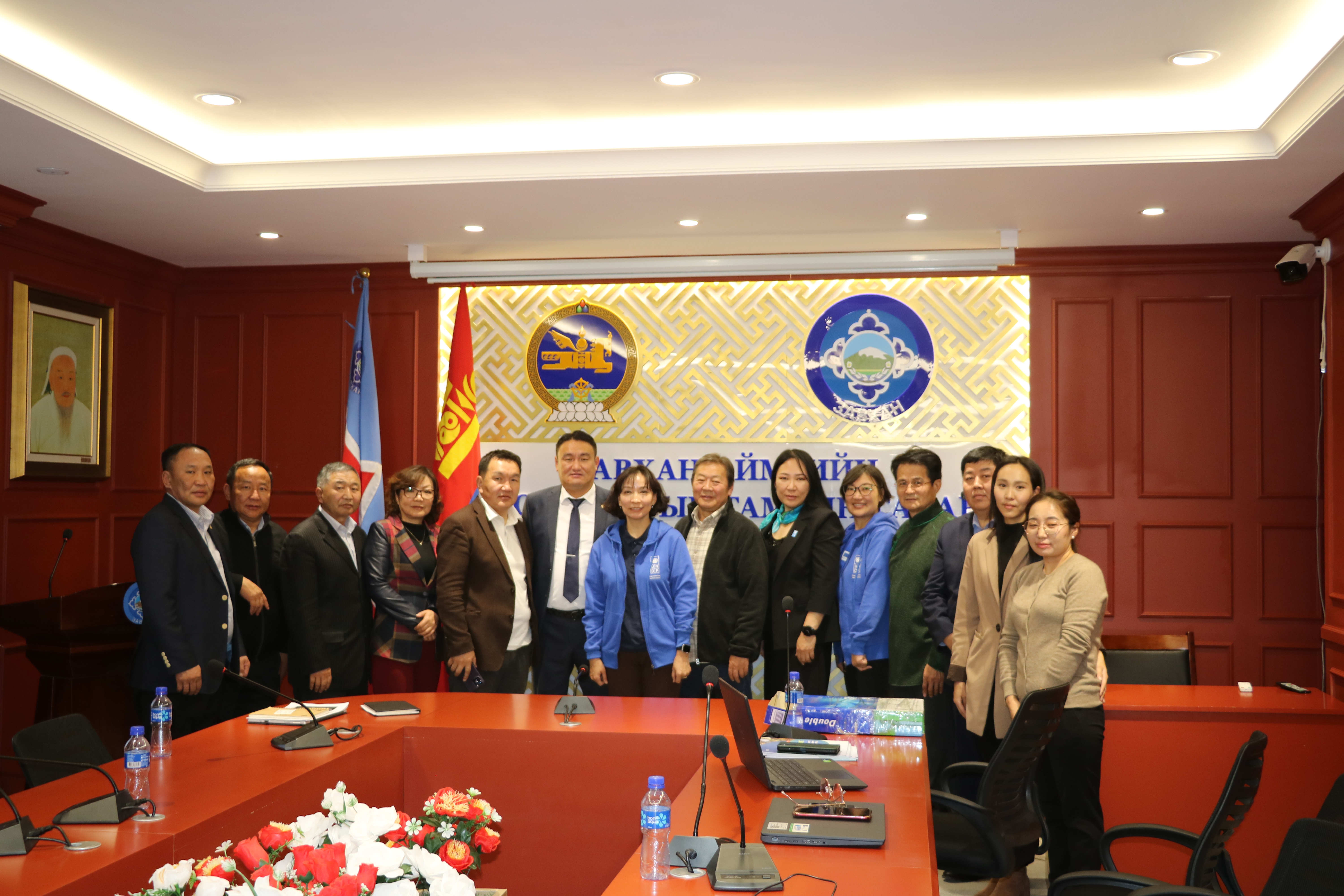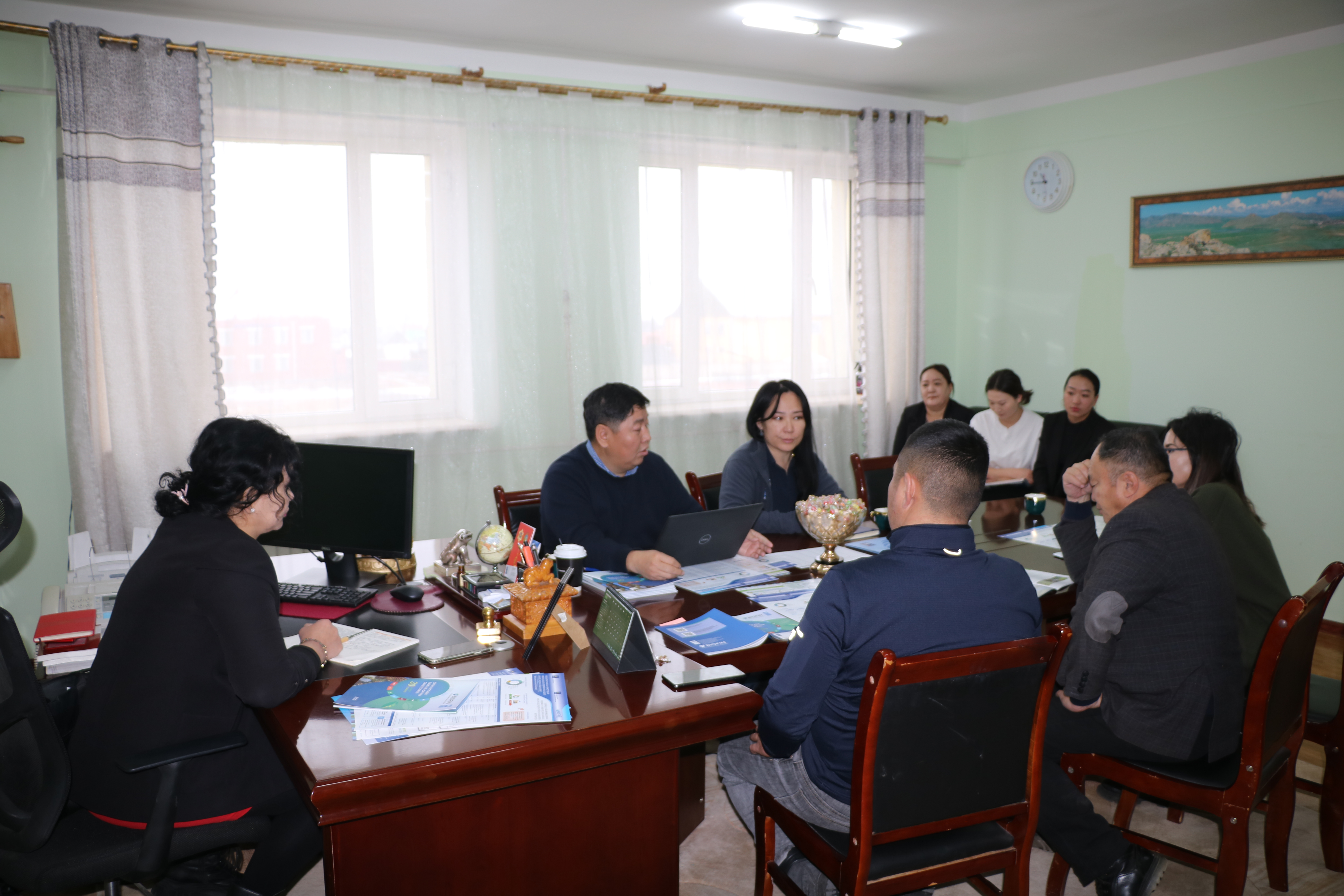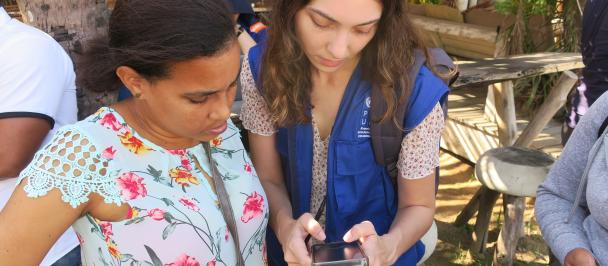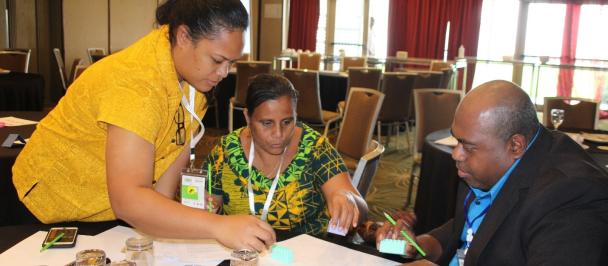Story from Mongolia’s Zavkhan province: Tackling Complexity with the Portfolio Approach
December 21, 2023

A thousand kilometers away from the bustling streets of Ulaanbaatar, lies Zavkhan province, a region chosen as the testing ground for UNDP Accelerator Lab's newly launched Sustainable Livelihood and Environment Portfolio. A landscape painted with stark beauty, Zavkhan faces a multitude of interconnected development challenges that have severe implications on its future.
Overgrazing, with 3.7 million livestock exceeding the carrying capacity of the land, has left pastures degraded and water scarce in Zavkhan. The herders are hesitant to sell their livestock due to low returns, further exacerbating the imbalance. This lack of income, coupled with brokers capturing a huge chunk of profits, creates a sense of helplessness and despair.
Waste disposal adds another layer of complexity. Local authorities and communities struggle with managing the waste from mass animal slaughtering, often resorting to open dumping, which poses environmental and health risks. Their desire to build small processing factories is hampered by a lack of funding, hindering the potential to create value from this waste.
The downstream value chain for livestock products is lacking. While herders yearn for international markets, their livestock often fail to meet the stringent animal health and food hygiene standards, adding to their frustration. Logistics further complicate the situation, making international trade even more challenging.
Adding to the woes is the shortage of veterinary doctors. Herders, desperate to treat their animals, resort to using antibiotics and other medicines without proper medical guidance, leading to food safety concerns.
Knowledge and skills regarding sustainable livestock breeding and pastureland use are also lacking, perpetuating the cycle of degradation and overexploitation.
The complex situation is made even more challenging due to the harsh reality of family separation. As all children are required to attend school at age six, mothers of herding families are compelled to relocate to the soum center alongside their young children, who are not yet capable of self-care. This separation of herder couples has implications on health, relationship, and finance through interruption of household dairy production as an additional source of income.
But Zavkhan's story isn't simply one of hardship. It's a testament to the noble spirit of its people, their determination to forge a brighter future. Local animal skin processor Amarjargal, embodies this spirit: "How can we make animal husbandry products healthy? We must employ veterinarians. The animal skin of the chest is covered with ticks, scabs, and scales. It doesn’t meet the raw material standards. This is caused by deteriorating animal health."
What struck me most about Amarjargal, who has been very active during our community listening sessions, is his concern with the environment and animal health rather than the profit. He said that he even discovered and utilizes a natural leather processing method, stopping the usage of artificial chemicals. This entrepreneurial spirit, coupled with a keen awareness of the need for sustainable practices, fuels the hope for a more resilient future.
However, the path forward is not without its obstacles. The main questions posed by the female governor of Ikh-Uul soum – sub-provincial administrative unit - of Zavkhan Province, "Why are commodity prices low? Should there be government policy to address it?" highlights the complex interplay between local issues and national policies. Addressing these challenges demands a multifaceted approach.
This is where the portfolio approach enters the equation, combining the local government commitment and local communities’ aspirations with inputs of diverse UNDP projects under a collaborative framework. ADAPT empowers communities with climate-resilient practices. ENSURE strengthens social safety nets and promotes sustainable alternative livelihood among others. SCALA champions landscape conservation and sustainable land use. BIOFIN weaves financial sustainability into the fabric of resource management. And Sustainable cashmere unlocks value chains for herders, improving their livelihoods and fostering ethical production. Acceleration Lab offers facilitation and innovative methods.
By bringing these diverse threads together, we aim to address the interconnected nature of Zavkhan's challenges in a holistic manner. After all, complex issues require integrated solutions.
Though I was overwhelmed at first by the challenges in Zavkhan, with the local governments of Zavkhan and its two soums joining forces with UNDP projects, a robust collaborative effort is starting to take shape. This commitment is solidified by the significant contributions from all parties: local communities willing to see the change, local governments sharing the costs, and UNDP providing additional resources.
This partnership signifies a shift from siloed approaches towards a unified system-level intervention. By addressing the interconnected nature of Zavkhan's challenges, the portfolio approach aims to create a sustainable future where the province's rich potential can flourish.
The future of Zavkhan holds promise, fueled by the community-driven joint action plan developed through UNDP's listening sessions. Now, the crucial test lies in its effective implementation. We must remain vigilant, continuously evaluating progress, embracing what works, and adjusting what doesn't. The road ahead is long and arduous, but with commitment, collaboration, and a willingness to embrace innovative solutions, Zavkhan has the potential to become a model for tackling complex challenges and building a thriving future for its people and its environment.
Zoljargal Gantumur: Head of Solutions Mapping at Accelerator Lab, UNDP Mongolia


 Locations
Locations




